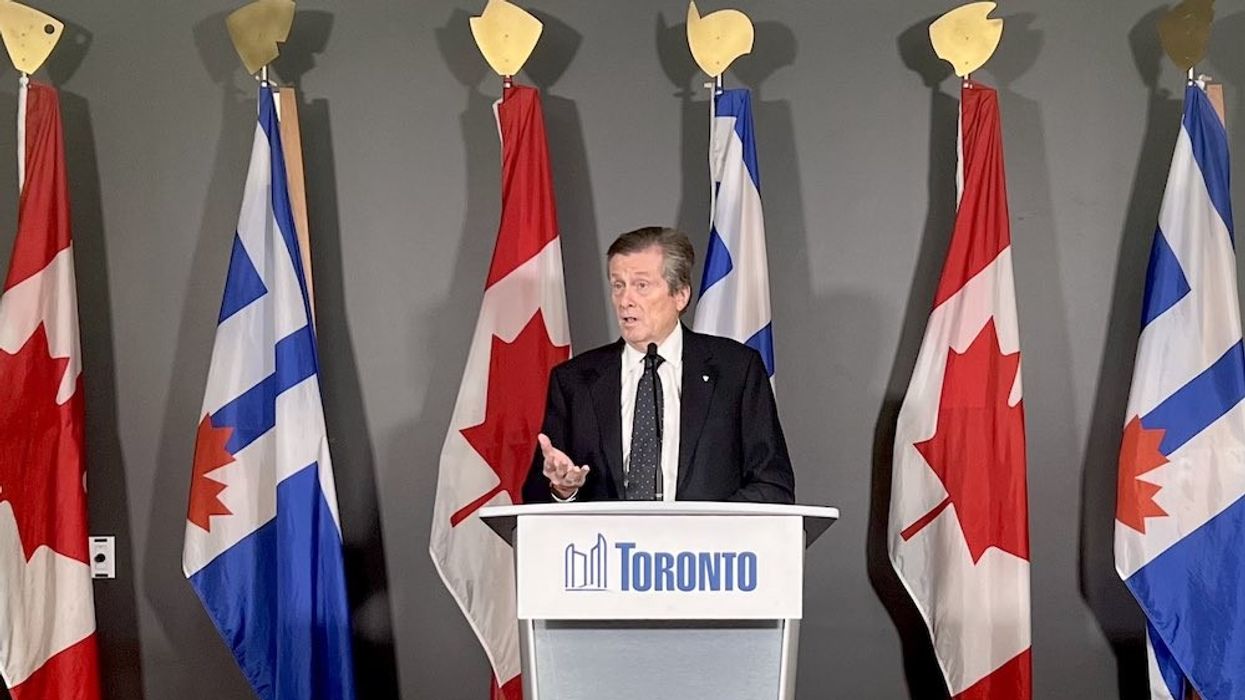Mayor John Tory is raising red flags around the Ford government's new housing plan, saying it could cost Toronto $200M per year in lost revenue.
During a press conference held at city hall on Wednesday, Tory said that although he is generally supportive of the push to create more housing and speed up the development approval process, as laid out in the new More Homes Built Fast Act, the reduction in fees, taxes, and development charges that it calls for will leave Toronto with a sizable hole in its budget.
"I'm very concerned about the financial implications for the City of Toronto," Tory said, later adding, "We've done some preliminary calculations... and we're talking here about hundreds of millions of dollars. We're not talking about a few million dollars."
The proposed housing plan, introduced by Minister of Municipal Affairs and Housing Steve Clark on Tuesday, lays out, plans to lower or eliminate development charges for certain types of housing, including family-sized and affordable rental units.
Development charges, paid by the developer to the City at the time a building permit is issued, go towards building adequate infrastructure to serve the residents of the new homes that are built. Developers have long lamented the pricey fees, saying they often add over $100,000 to the price of each unit, and are discouraging development within the city.
Concerns were heightened earlier this year when Toronto City Council voted to raise development charges nearly 50%, with those in favour saying the previous development charges were not adequate to pay for much-needed infrastructure in such a rapidly growing city.
"I'd rather not have any increase in development charges ever just because I understand that contributes to the cost of housing," Tory said. "But at the same time, I also understand it is not responsible to be building buildings without proper sewage systems in place, without proper water, transit, roads, all the community centres, libraries, all the things that we specifically attach to the development charges that we put in place."
In the tabled legislation, the provincial government did not include measures that would provide additional funding to cities to compensate for the lost revenue -- something Tory said is not fair.
“If they believe, and I don’t even dispute the fact, that this could be a valuable tool to get rental housing built, well then, help us," Tory said. "Be good partners with us and put up the money or work with the feds to put it up together, because we just don’t have the ability to raise that money."
The government of Ontario has had its eye on adding 1.5M new homes to the province by 2031, and the new legislation provides a by-municipality breakdown, delegating a certain number of these future homes to each municipality. The municipalities would then be required to develop pledges outlining how they will meet their building target. Toronto, which is given the largest share, would be expected to build 285,000 new homes.
The Association of Municipalities Ontario (AMO) said that although it found the province's goal of adding more housing encouraging, the reduction in development charges, along with a handful of other fees, is of concern.
"In AMO’s view, the proposed changes to municipal development charges, parkland dedication levies, and community benefits charges may contradict the goal of building more housing in the long-term," AMO said in a statement. "Unless fully offset by funding to support growth-related projects, reductions in these fees will shift the financial burden of growth-related infrastructure onto existing municipal taxpayers."
During the press conference, Tory also addressed suggestions that Toronto simply dip into its development reserve funds, which totaled $2.3B at the end of 2021, to make up for the lost revenue.
"Yes the City has development charge reserves and they have a lot of money in them, and that is because we collect the development charge but we're not necessarily building the sewer pipe or building the road or building the transit project that day," Tory said. "And so it is a legal obligation that we keep that money in a reserve fund, not some kind of bank account that's like a piggy bank."





















